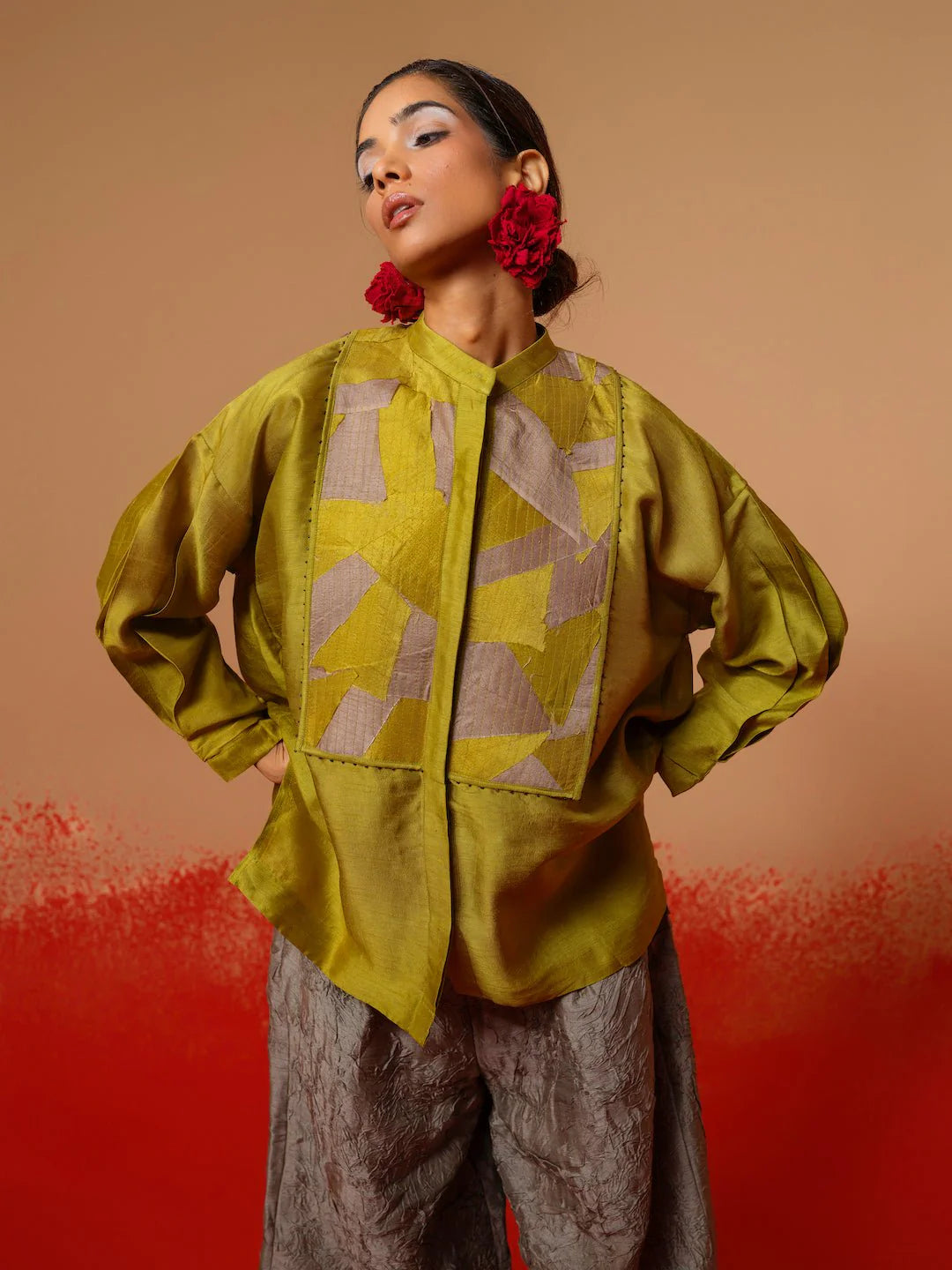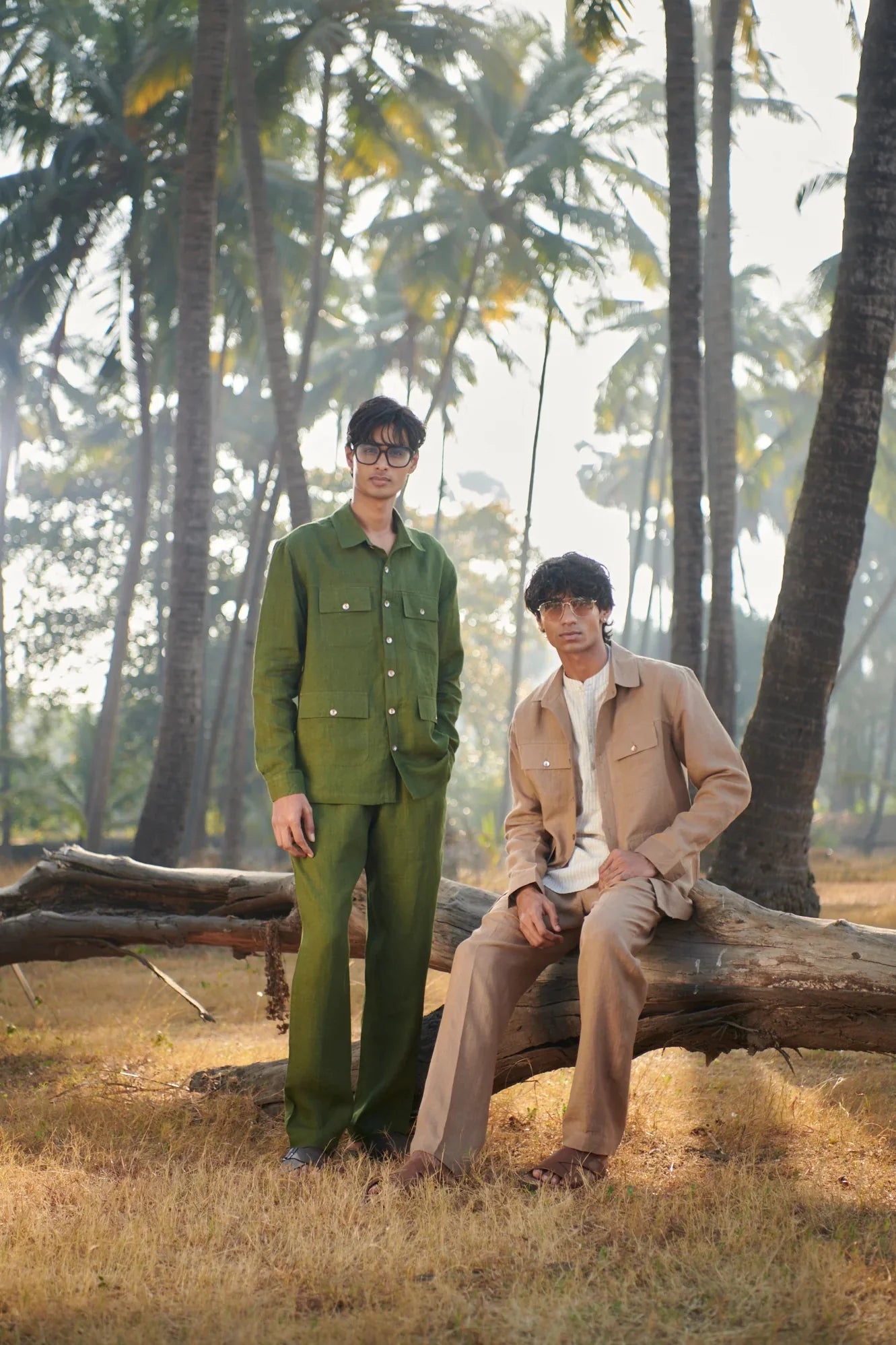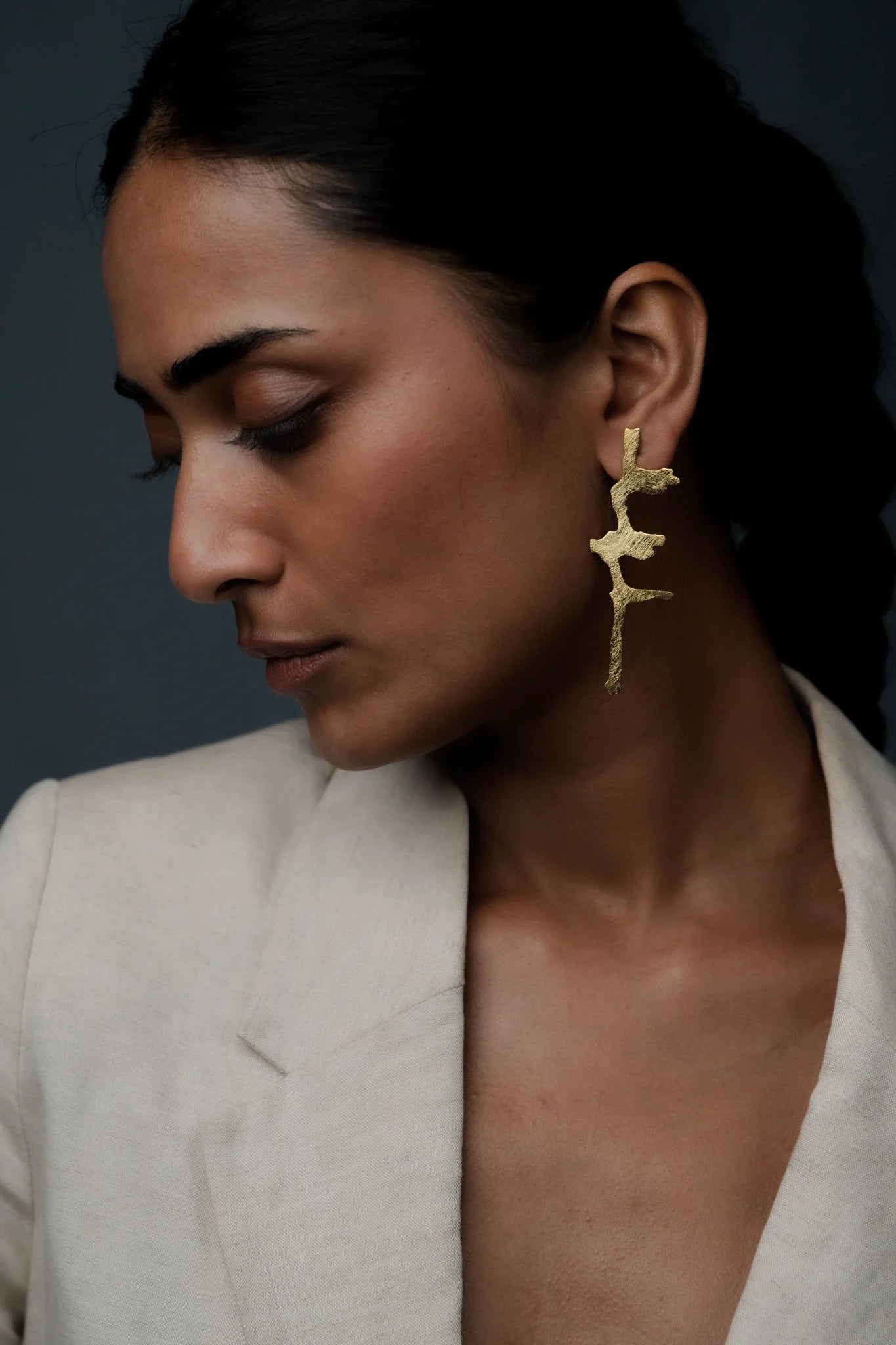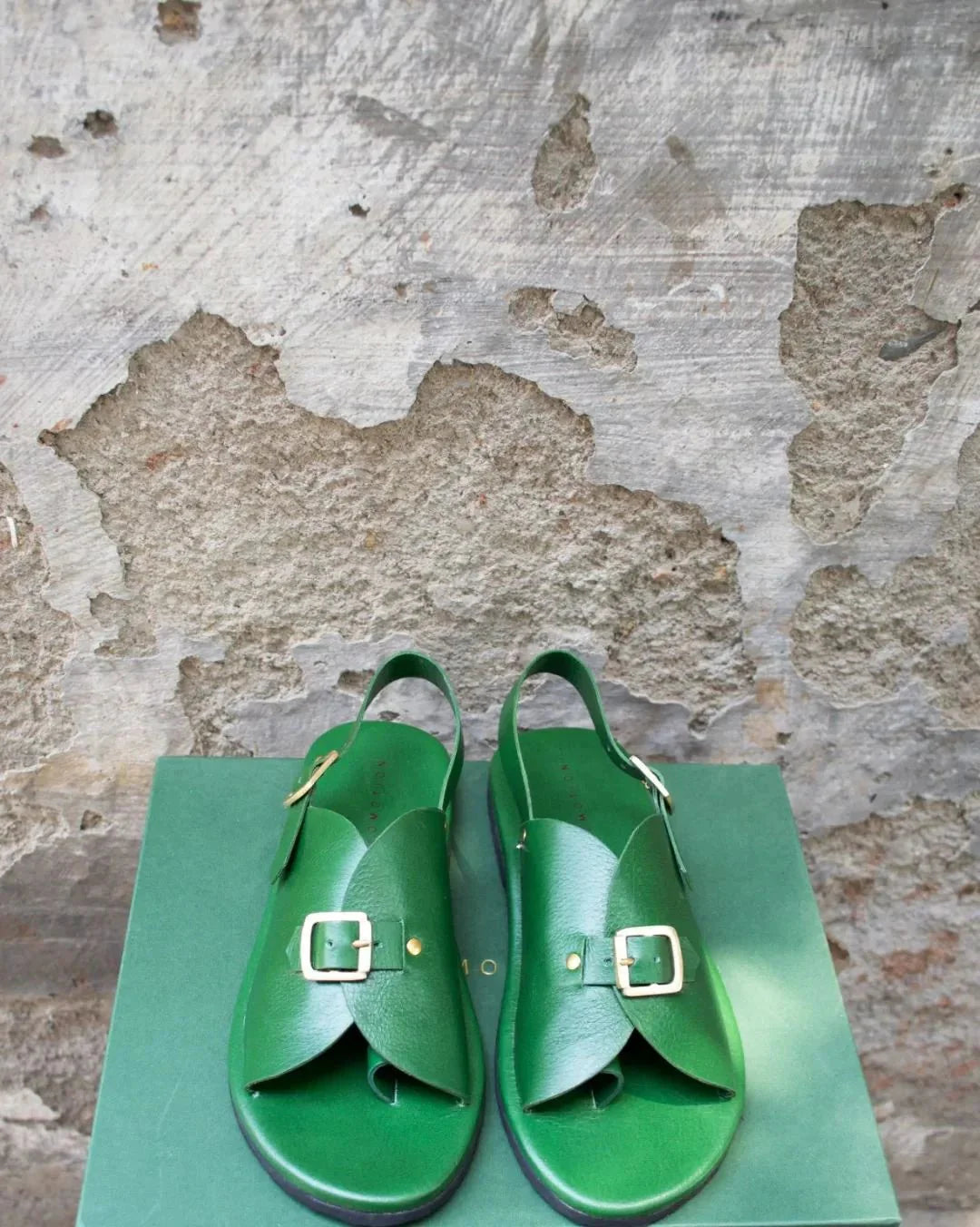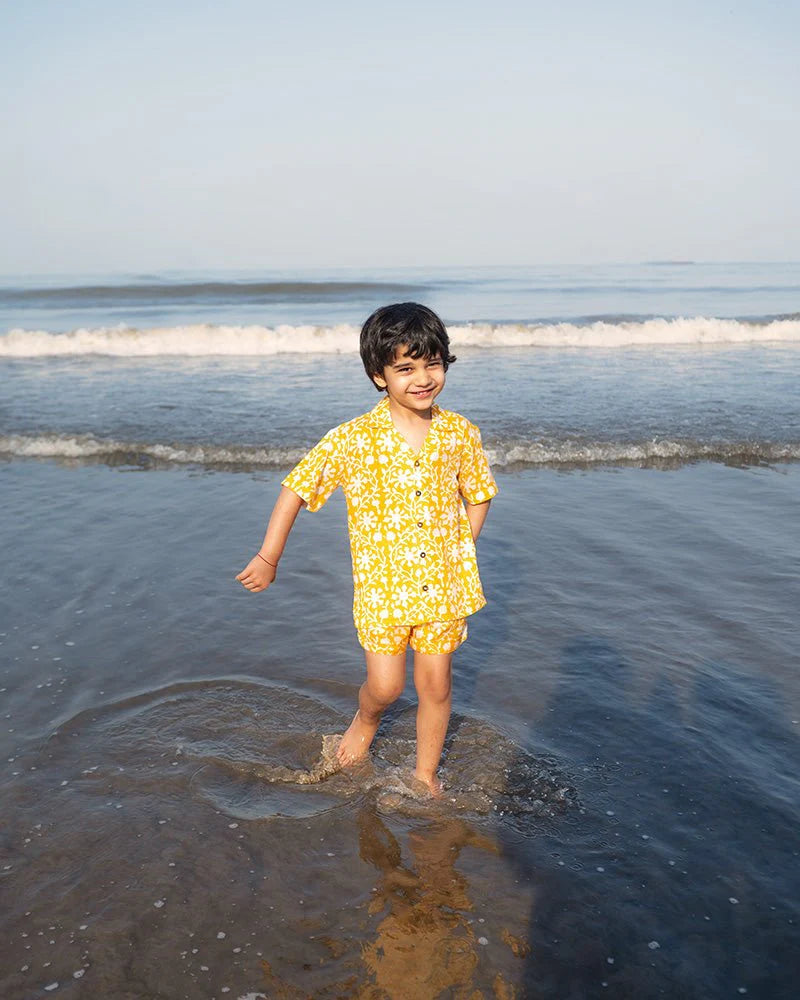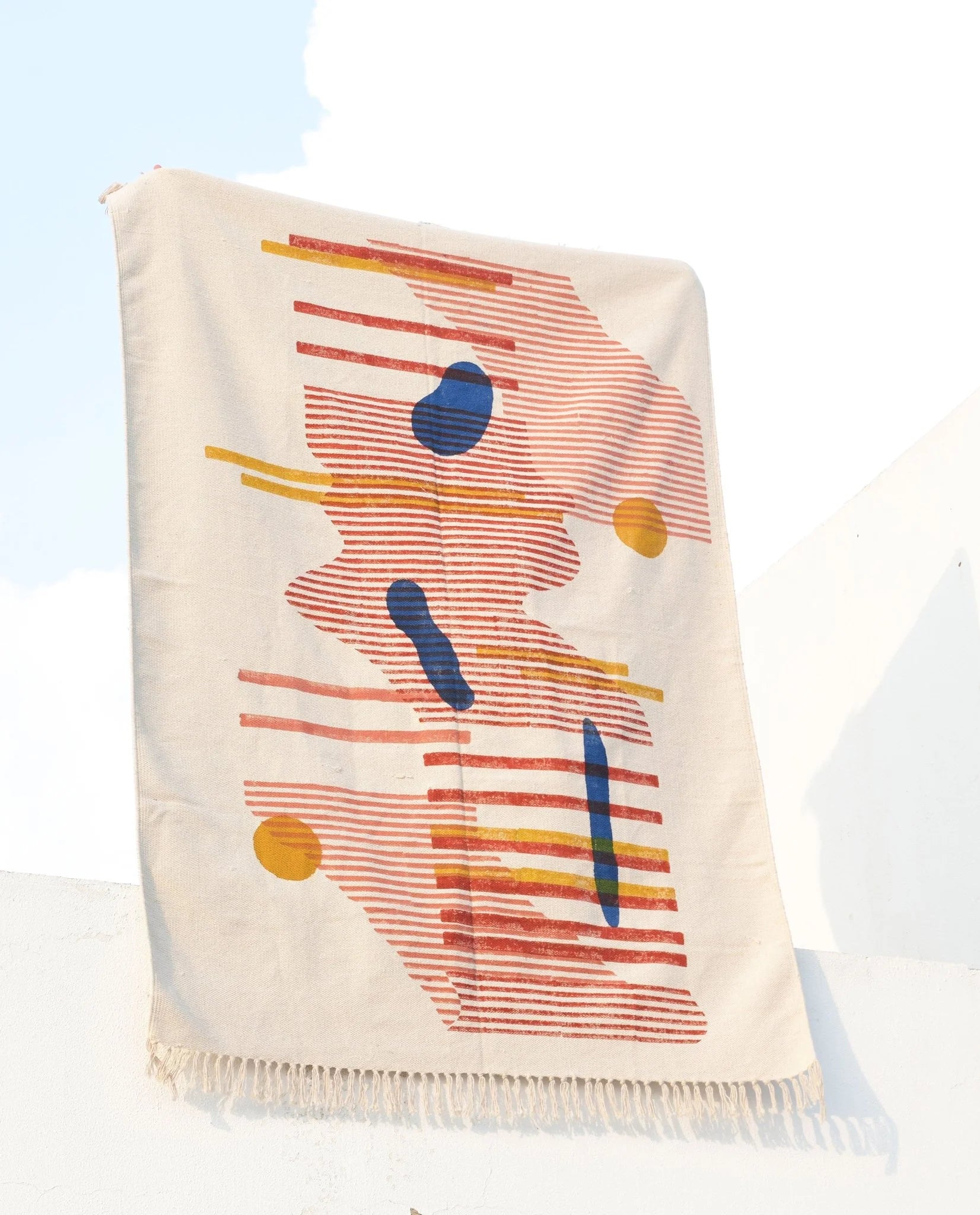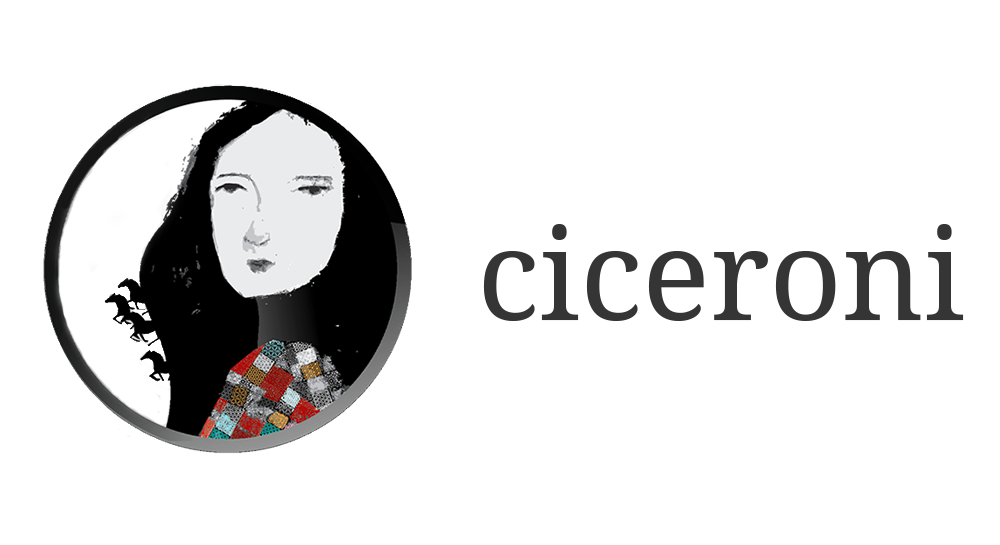Sit back and shop slow

Do you wake up and stare at the mountain of clothes in your closet, wondering what on earth would you wear today? If yes, then you made a fast choice, my friend.
We can’t help but get excited when we enter a huge store with flashing lights and shelves stocked with a rainbow of colours and crazy-cut apparel. These once-exciting purchases quickly lose their lustre and become outdated or unflattering. This epitomizes “fast fashion” and a “fast choice.”
Fast fashion labels produce a surplus of garments in constantly shifting styles that follow the latest trends to profit from the endless consumer market. Retail therapy needs to become more environmentally conscious because these businesses are doing more damage to the planet than we’re willing to admit. You might think to yourself, “Do I have a choice?” Well, of course, you do!

Many popular clothing lines use factories where workers of all ages are paid poorly to produce wares. Each item of clothing must be produced and put on shelves in as little time and at as cheap a cost as possible, and these workers endure extreme hardship to make it happen. It’s not only unethical but there’s a huge, unnoticed cost that the ecosystem bears (on our behalf) in a lot of ways.
Thankfully, many fashion firms (both big and small) have seen the light and realised that such tactics just lead to a race to the bottom. The Slow Fashion Movement emerged to promote transparency across the whole fashion value chain. Rather than focusing solely on following the latest trends, designers that practise slow fashion focus on making well-made, timeless pieces.
Few Indian designers are attempting to bring about much-needed change in the fashion business, even though fast fashion, which prioritises speed and low prices, is particularly harmful to the environment. Check out Ciceroni’s compilation of ten leading sustainable homegrown labels from India for the year 2022.
Kissa Goi

Kissa Goi is a youthful, art-based textile label that advocates slow fashion by including a narrative in each of its handmade garments. The label encourages its consumers to slow down and appreciate the present moment. Kissa Goi pieces are the pinnacle of wearable art that inspires. The label’s ready-to-wear collections, such as the hand marbled shirts and the mappa mundi linen shirts, are a stunning display of the beauty that can be achieved when traditional craft methods are combined with organic fabrics.

Founded by Anushrie and Ayushi, two sisters from the small Indian city of Surat, Gujarat, Kissa Goi makes products that endure not just in a person’s closet but also in their stories, adventures, and legacies. Artistic and functional best describe the garments designed by Kissa Goi. It is a contemporary, all-inclusive label known for its high-quality handwork regardless of gender identity.
Aarjavee

Aarjavee is a young Indian modern lifestyle label founded by Aarjavee Shah that makes standout jewellery with an eye for detail and an emphasis on adaptability. Their range of apparel consists of elevated essentials with an emphasis on fine craftsmanship. The rings and neckpieces are handmade in recycled brass with minimal wastage.

When it comes to their clothing line, which is characterised by its rustic and earthy tones, the designer ensures that they are aware of the process by which it is manufactured. Produced in limited quantities, they adhere to the principles of mindful fashion throughout the entirety of their manufacturing process. This ensures that they do not unduly stress the environment while also fostering conscientious consumerism. They utilise handwoven kala cotton and colours that do not include any chemicals to assure the durability of the clothing, in addition to ensuring that they are loving and thoughtful.
You can rely on this label for a little something extra, whether you’re seeking for upcycled clothing or outlandish jewellery pieces.
Anushe Pirani

With the goal of challenging the often-predictable norms of fashion, Anushé Pirani founded her eponymous label in Mumbai in 2016. The brand takes an unconventional approach to silhouette construction, producing clothes that are both beautiful and functional.
The label’s multifaceted approach works equally well for men’s and women’s clothing, easily fusing form and function without sacrificing their signature attention to detail in the fine arts and design. Anushe makes modern ready-to-wear for men and women as well as accessories like fanny packs, backpacks, and caps made from sample fabrics. She recently debuted a zero-waste edit called Raddi Maal, which comprised gender-neutral shirts, tote bags, pocket belt bags, bookmarks, bowties, and brooches produced with fabric scraps.

They mainly works with cotton handlooms and seeks to empower Indian craftsmen by adding various textiles, skills or techniques into their creations. Following the same philosophy, they have worked on handwoven fabrics with bagru print and ikat.
What they believe in is straightforward. They create wearable art for the conscious lifestyle, not to follow the trends. They plan to take their time in establishing their brand and fully commit to the concept of sustainability as they go further.
Amalgam by Aishwarya

Amalgam By Aishwarya is a sustainable fashion and jewellery line based out of Kolkata. In plain terms, ‘amalgam’ is a balanced mixture of two or more components. In order to protect the purity of our earth, we must amalgamate, or unite and propagate a sense of unity among all people.
Their entire clothing line is naturally dyed, made from pure hemp and is perfect for easy breezy lounge styles. Their jewellery collection on the other hand is handcrafted in recycled brass which is then dipped in gold for longer durability. Every piece they make is a constant reminder of the need of protecting the nature and of the beauty it brings to our lives. Twenty percent of the sale proceeds from this collection is donated to the Wildlife Conservation Trust.

You can see that Amalgam is a sustainable brand in this context. This means that the entire process, from designing to marketing, is entirely sustainable. As an alternative to following the poison of “fast fashion,” which encourages environmental damage, the primary motivation for the establishment of Amalgam was to educate our people on the value of a stylish sustainable lifestyle.
Advait

Advait, founded in 2020 by Advaitha Ravishankar, produces clothing that combine elements of fine art and high design. The golden age of the pop culture serves as inspiration for their designs, which are then hand-painted in rich, vivid colours with the intention of rekindling a sense of wonder.
Advait has frequently been sighted at events on Bollywood stars such as Shriya Pilgaonkar, Rytasha Rathore, and Genelia D’ Souza. The label’s eccentric prints and patterns make it desirable for anyone looking to express themselves through their clothing choices.

Everything they use has been carefully chosen because it reflects their commitment to bettering themselves and the planet. Advait garments are made of soft and breathable Lenzing Tencel and recycled polyester, while the insides are lined with either locally woven Handloom Cotton or ultra-luxurious Lenzing Modal. Their printed materials are safe for both the environment and your skin since they use dyes manufactured from non-toxic, AZO-free dyes.
Nirjara

Nirjara is one of the seven pillars of the philosophy of life and the driving force behind the company’s gradual creative approach to fashion and textiles. Founded by Nirjara Shah, the Ahmedabad based label takes great effort to ensure the long-term viability of the fabrics and clothes they produce. Ranging from bright hued flowy dresses to long dresses and tops in earthy notes, each piece is handcrafted in Chanderi cotton and silk with great care using traditional methods that don’t harm the environment.

The concept of transformation is central to this slow-design clothing and textile brand. If you’re a connoisseur of fine fashion, you’ll appreciate the way this label updates classic Indian designs with contemporary colour palettes and design features without straying too far from their Indian roots.
23°N 69°E

23°N 69°E, a sustainable label founded and led by Anas Sheikh is known for successfully fusing modern aesthetics with our Indian culture. The label is known for its hand-painted works that include bold strokes in addition to its range of hand-painted pieces using a variety of methods like marbling, Ajrakh, block-printing, and various resist dyeing procedures like mud resist and clamp dyeing. Iron rust (black), indigo, and gachch (red) are some of the natural dyes used in their production, all of which are manufactured in Kutch. Due to the nature of handiwork, no two items are identical.
Featuring hand-painted and screen-printed designs on organic cotton, denim cotton twill, and other lightweight fabrics, their breezy shirts are perfect for everyday carry and their shackets, are ideal for layering.

Saving resources and acting ethically in regard to our planet is where the fashion industry is headed. To bridge the gap between sustainability and the fashion industry, 23°N.69°E offers the solution. Rather, their artisans and designers work side by side as peers, sharing knowledge and insights to foster innovation. They use natural dyes in their process as opposed to Azo dyes which tends to be carcinogenic under certain conditions. Better protection from the UV rays is provided by materials treated with natural dyes. The combination of natural dyes and conventional printing techniques to create simple yet distinctive garments are what makes this brand so fascinating.
NO.NA.MÉ

Smruti Mathisekaran and Gehna Doshi’s award-winning NO.NA.MÉ is a show-stopping line of gender-neutral accessories ranging from peculiar neckpieces to eccentric rings and bracelets. It is a movement that embraces novelty, investigates individual agency, and rejects narrow categorizations. The brand’s first two collections have been recognised as the finest in India at the India Best Design Awards (IBDA) in both 2020 and 2021. A Lexus Design Award 2022 was also given to one of them.
‘NO.NA.MÉ’ makes bold modular statement jewellery, inspired by geometry for those who value unconventional expression over conformity. The brand’s primary function is not to serve as a label for consumer goods, but rather to provide a platform for self-expression.

Unique to ‘NO.NA.MÉ is a design language based on modular, detachable pieces that may be combined in a variety of ways to yield a wide range of wearable design possibilities. The design concept derives from the premise that if one object can become more than one thing then it is in the correct path at slowing down consumption.
Equiivalence

Equiivalence was founded Avani Shah with the intention of providing a line of cutting-edge, statement-making fine jewellery that is also environmentally friendly. She takes her cue from nature and art to create luxurious jewellery that can be worn the entire day.
Equiivalence pieces are works of art crafted from 70-100% recycled brass and other materials acquired responsibly. From intricate earrings to quirky rings to distinctive bangles to one-of-a-kind neckpieces, you may find a wide range of accessories to choose from while being mindful about the environment.

Their jewellery is made from brass scraps purchased from manufacturers, from which skilled artisans create wires and sheets. By doing this, they hope to cut down on the need for new Brass.
Hypedevi

Earrings by South Asian maximalist fashion label Hypedevi combine contemporary design with traditional Indian handicrafts. They employ zero-waste production processes to be as environmentally friendly and frugal as feasible. The traditional Indian needlework and crafts are heavily utilised. Each one of these intricate patterns, from the simplest to the most complicated, is made entirely by hand. The jewellery is lightweight yet makes a bold fashion statement.

All the embroidery designs have been put out to provide maximum efficiency and little scrap. Moreover, the leftover pieces are put to use by filling in the items and giving them 3D shapes. The label is dedicated to maximising its customers’ satisfaction by promoting sustainable practises and educating them on the importance of making ethical purchases.
A Paradigm Shift

The fashion sector is responsible for 10% of the global pollution, thus scientists and industry professionals have been advocating for a complete overhaul. The fast fashion paradigm, which is centred on low-cost manufacture, frequent consumption, and short-term usage, is contributing to environmental deterioration.
And if it still doesn’t ring a bell, open your wardrobe, and count the number of garments you haven’t used in the previous two months. It’s possible that this will help you see that you too are complicit in the issue.
So, let’s take up the cause of slow fashion and work to improve the planet’s health, one garment at a time.

